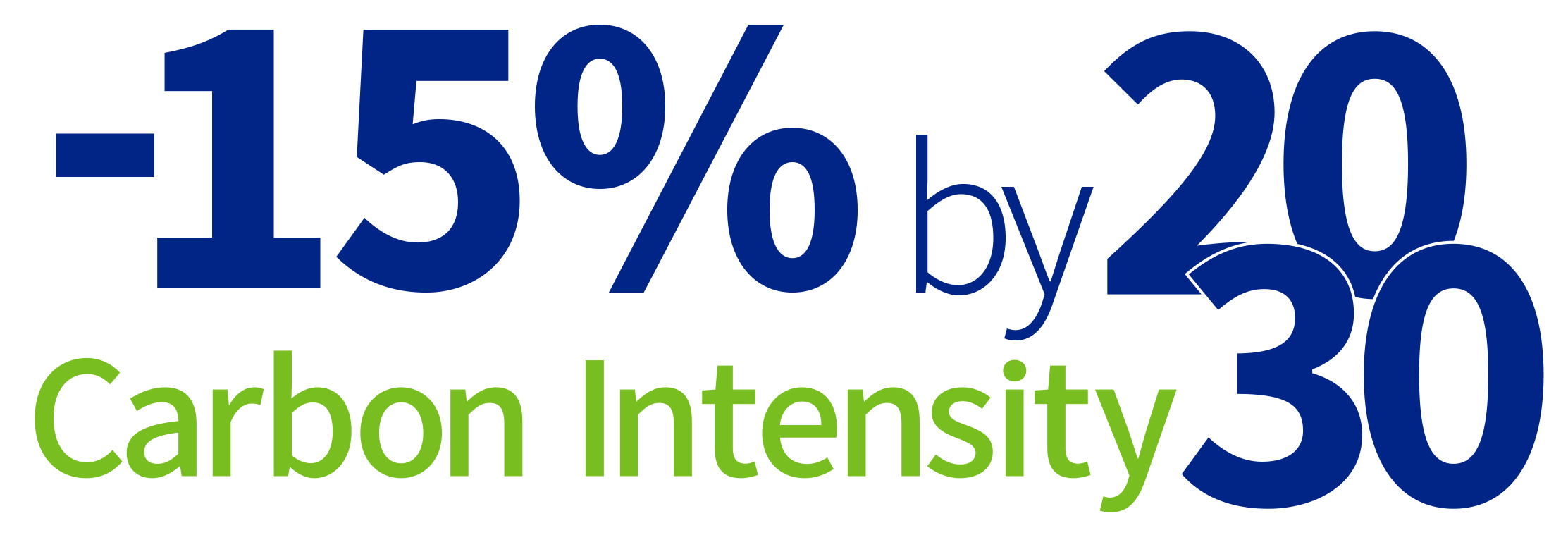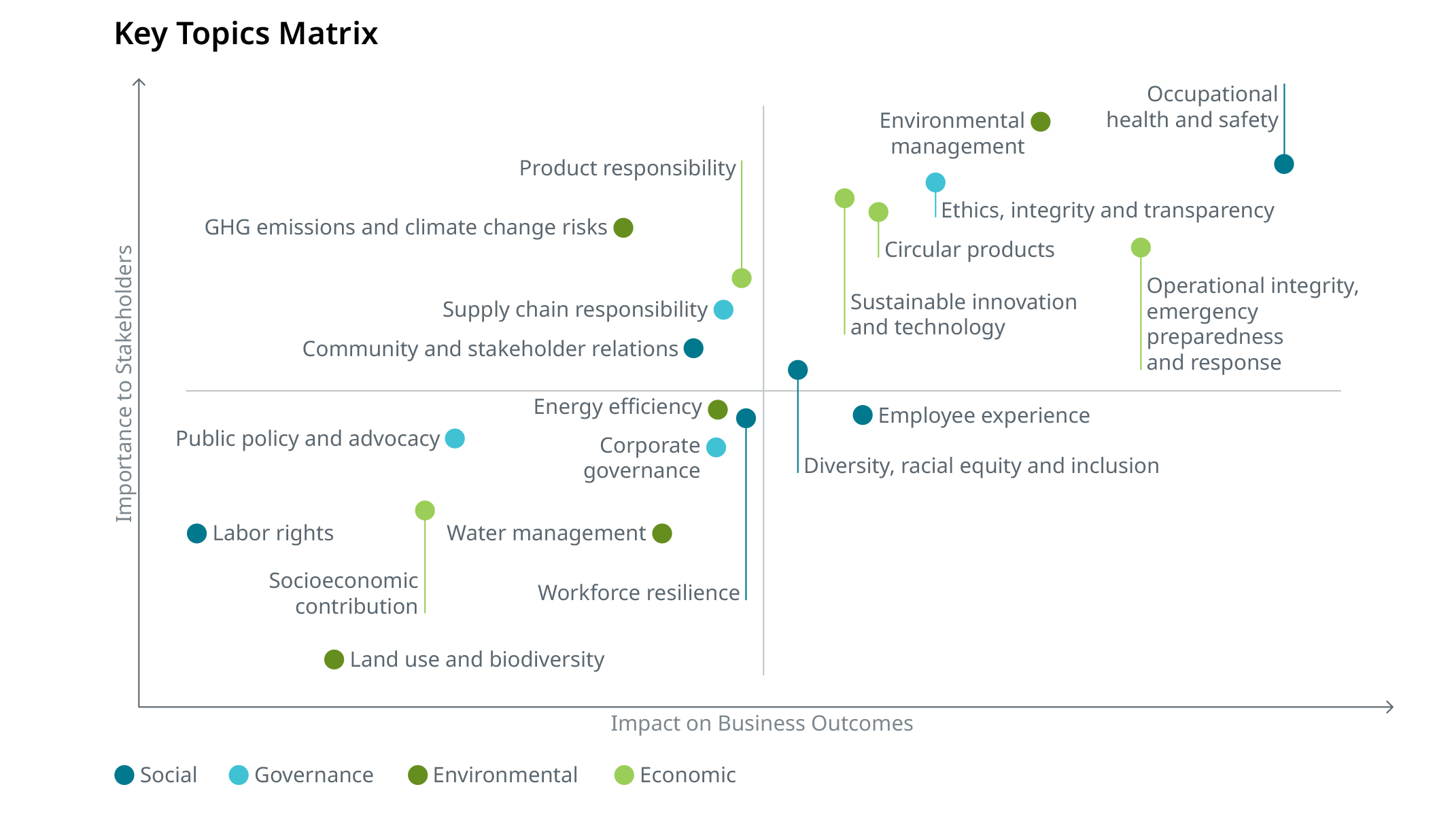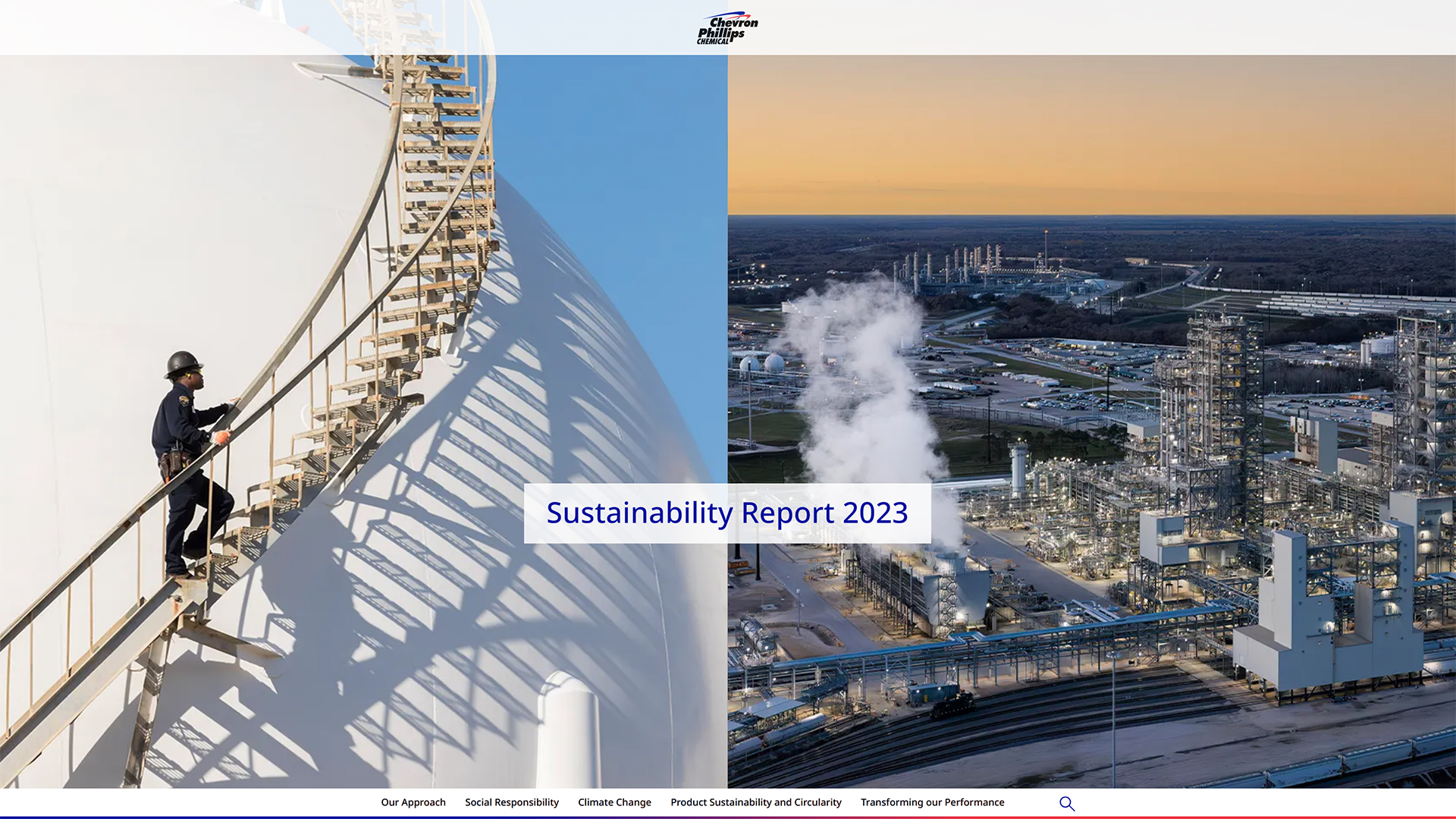Our Sustainability Story
At CPChem, sustainability is woven into our business, and it inspires continuous improvement and innovation across the company. As a global leader in the production of chemicals and plastics, we strongly support efforts to reduce plastic waste and lower greenhouse gas emissions. We have announced several sustainability targets to track progress and drive our evolution.
By the year 2030, CPChem aims to:


- Reduce carbon intensity by 15% compared to 2020 baseline: We are identifying and implementing practical solutions that reduce emissions, leverage lower carbon growth projects and optimize operations.
- Advance renewable energy solutions: We aspire for renewable energy sources to account for approximately one-third of our energy use in coming years.
- Boost production of circular products: We are working toward the target of an annual production volume of 1 billion pounds of Marlex® Anew™ Circular Polyethylene, demonstrating the great potential of advanced recycling technology to help repurpose difficult-to-recycle plastics into new, safe products.
Key Focus Areas
CPChem’s sustainability strategy has three focus areas that inspire and drive progress on our sustainability journey, while also elevating the people and communities where we operate.

Climate Change

Product Sustainability and Circularity

Social Responsibility
“CPChem is drawing on its expertise in research and technology to innovate and explore solutions and business models aimed at reducing environmental impacts and generating value for communities and stakeholders."
— Benny Mermans, Vice President of Sustainability
Assessing Material Topics
Materiality assessments help us identify key issues and set company priorities. Assessments are completed through benchmarking and dialogue with stakeholder groups. CPChem’s 2020 Key Issue Assessment provided valuable insight and helped to shape the company’s sustainability goals.

Examples of key issues:
- GHG emissions and climate change risk
- Product responsibility
- Circular products
- Occupational health and safety
- Diversity, equity, and inclusion
- Labor rights
- Employee experience
- Energy efficiency
- Energy efficiency
- Land use and biodiversity
Stakeholder Engagement and Governance
Stakeholder awareness and engagement helps us assess business priorities and is a component of CPChem’s corporate sustainability efforts. We collaborate with the following stakeholder groups to better understand their unique perspectives on relevant social, environmental and governance issues:
- Employees
- Communities
- Governments
- Suppliers and customers
- Non-governmental organizations (NGOs)
- Industry trade sector
Executive-led oversight teams are charged with directing the company’s targeted efforts related to Climate Change and Product Sustainability and Circularity. These bodies provide a multi-disciplinary approach to manage and align sustainability activities with CPChem’s operational, commercial and functional priorities.
See how we're turning our mission into action.
07/28/2025
THE WOODLANDS, Texas — Chevron Phillips Chemical today published its 2024 Sustainability Report. Titled Spot on, the organization’s 14th sustainability report reflects the purpose, people and pr ...
07/21/2025
Photo credit: Plastics EuropeCPChem VP of Sustainability Benny Mermans, the newly elected president of Plastics Europe, and Virginia Janssens, managing director of Plastics Europe CPChem’s Benny ...
07/18/2024
THE WOODLANDS, Texas — Chevron Phillips Chemical today published its 2023 Sustainability Report, a comprehensive document that showcases the company’s efforts and notable achievements in its journey t ...



